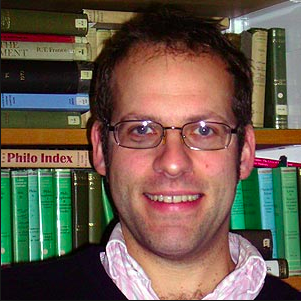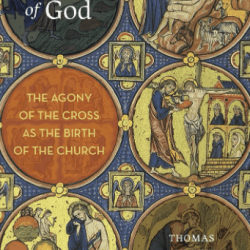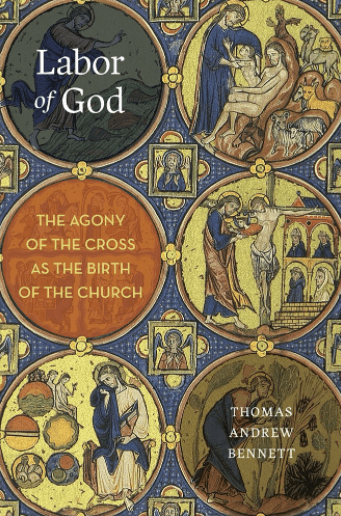Wesley Walker is a seminarian at Liberty University School of Divinity and an active member in the Anglican Church in North America. His personal blog can be found here.
In Christian circles, what Christ’s death on the cross accomplished is an oft debated topic. Generally, Christians fall into two camps.
On one side are those who advocate Penal Substitution. Proponents of this perspective argue that Christ paid the penalty in the place of sinners to satisfy God’s sense of justice. It is through this transaction that humanity can experience justification.
The Christus Victor camp, arguing against Penal Substitutionary understandings of the Atonement, claims that through sin, humans in their natural state belong to Satan. Christ, by dying on the cross, paid a ransom to the Devil. However, death could not hold him and he rose again, thereby vanquishing Satan, death, and sin. One of the weaknesses in modern articulations of Christus Victor is that its definition can change to mean different things to different people. The rudimentary definition above is the one that would be attested to by the consensus of Church Fathers.
The thing is, both positions offer valid contributions to a holistic understanding of the Atonement. A fantastic synthesis of these two perspectives can be discovered in Wesley’s sermon “Awake Thou that Sleepest.”
This sermon, first delivered in 1742, speaks mainly about the concept of regeneration. It is based on Ephesians 5:14 (NRSV) which states, “Sleeper, awake! Rise from the dead, and Christ will shine on you.” While the sermon isn’t about the Atonement specifically, it is helpful in demonstrating Wesley’s understanding of the theological impacts which stem from Christ’s death.
The framework Wesley operates in uses four main images: darkness, sickness, Satan as a captor, and death. Darkness and sleep are used to mean the state of unregenerate humanity: “By sleep is signified the natural state of man” (I.1).
The second term, sickness, is common in Eastern Orthodox theology. This stands for the pervasiveness of sin, which is especially devastating when one is unaware of its presence, festering inside and preventing one from experiencing life as it was meant to be. The fact that Wesley appropriates the vocabulary of the Eastern Fathers shows his familiarity with that tradition, meaning he had intimate knowledge with their atonement metaphors.
The Devil as a captor is mentioned in I.3. “He [the Sleeper] says, ‘Peace! Peace!’ while the devil, as a strong man armed is in full possession of his soul.”
All of these themes lead to death, which is defined as an estrangement from God (I.8). “The natural man,” he claims, “does not receive the things of the Spirit of God” (I.11).
The only way, then, for the soul to experience life is to “hearken to the voice of the Son of God” (I.9). By responding to Christ, one avoids the “mighty tempest of God’s judgment” (II.1). The most logical explanation is justification signals the satisfaction of God’s wrath. This is especially true given the later claim (II.6), “Were God, while I am yet speaking, to require it of you, are you ready to meet death and judgment? Can you stand in His sight, who is of purer eyes than to behold iniquity? Have you put off the old man, and put on the new? Are you clothed on with Christ?” The outpouring of God’s saving work at the hands of his Son is that “Christ shall dwell in your heart by faith” (III.2).
What then, is the best way to articulate Wesley’s synthesis of the Atonement based on this sermon? Basically, the ubiquity of sin in humanity gives Satan a “legal deed” to our souls. The result of Satan’s ownership is death, probably because it is understood that all this stems from the rupturing of humanity’s relationship with God.
The only way for one to be rescued from this predicament is for Christ’s substitutionary death to be applied to them (I.9).
So in the end, this isn’t so much an either/or issue so much as a both/and. Wesley’s argument tracks quite well with Hebrews 2:14-15, 17, “Since the children have flesh and blood, he too shared in their humanity so that by his death he might break the power of him who holds the power of death—that is, the devil—and set free those who all their lives were held in slavery by their fear of death. For this reason he had to be made like them, fully human in every way, in order that he might become a merciful and faithful high priest in service to God, and that he might make atonement for the sins of the people.”
Humanity’s sin caused separation from God (death) and handed Satan the title deed to our souls. In the Incarnation, Christ took on flesh and sacrificed himself which satisfied God’s wrath because our identification with the Devil and sin required it. There is plenty of room for both themes in orthodox theology and Wesley’s work is magnificent at demonstrating that.










